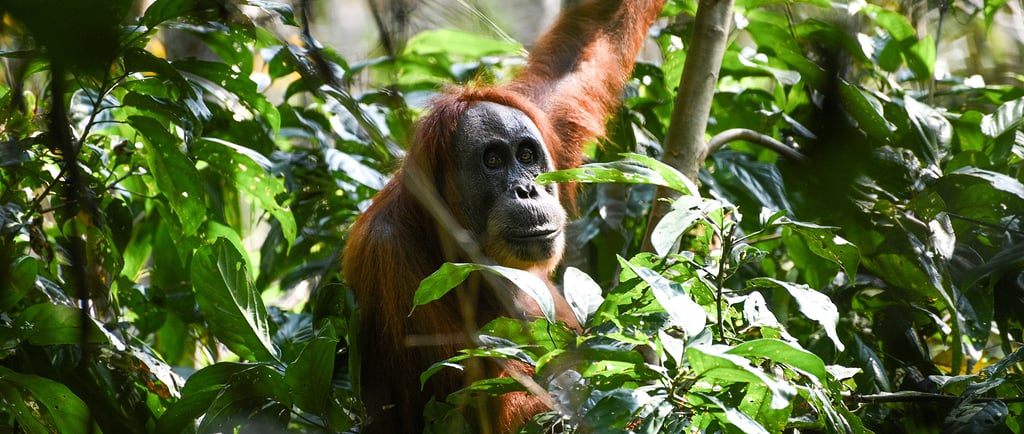Bukit Lawang Jungle Trekking: How to Choose a Sustainable Guide
As a sustainable trekking guide in Bukit Lawang, our mission goes beyond simply leading visitors through the jungle. We are dedicated to raising environmental and cultural awareness, helping travelers understand the fragile balance of the rainforest ecosystem, and fostering genuine respect for the traditions and way of life of the local people. Every trek is guided with care, ensuring that wildlife is observed responsibly, without feeding, touching, or disturbing the animals in their natural habitat.
8/19/20254 min read


Understanding the Importance of Sustainable Tourism
Sustainable tourism is an essential concept that strives to ensure that travel activities do not harm the environment or the local communities of the destination, particularly in ecologically rich areas like Bukit Lawang. As a popular jungle trekking destination in Indonesia, Bukit Lawang attracts countless travelers, creating a substantial impact on its surrounding ecosystem. Trekking, although an exhilarating experience for adventurers, can potentially lead to deforestation, wildlife disturbance, and degradation of natural resources if not conducted responsibly. Thus, understanding and embracing sustainable tourism practices becomes crucial.
The implications of tourism on a local environment stretch beyond mere physical damage. It can disrupt the social fabric and economic equilibrium of communities that rely on their natural surroundings for their livelihood. By prioritizing sustainable practices, travelers can contribute positively to the ecological health and cultural integrity of their visited regions. Responsible trekking, which includes choosing sustainable guides and ensuring minimal impact on wildlife, becomes vital in preserving Bukit Lawang's precious biodiversity.
Moreover, the benefits of sustainable tourism can be twofold. Travelers gain a deeper understanding of local cultures, enhancing their travel experiences while also contributing to conservation efforts. Sustainable jungle trekking promotes environmental stewardship among tourists, encouraging them to value the beauty of nature and the importance of preserving it for future generations. Through responsible travel choices, trekkers actively participate in community development and conservation initiatives, fostering respect between travelers and local inhabitants.
In this context, selecting a sustainable guide is not just about choosing a tour operator; it also signifies endorsing practices that protect both the environment and the community. Thus, understanding the importance of sustainable tourism forms the foundation for responsible trekking adventures and supports the ongoing preservation of destinations like Bukit Lawang.
What to Look for in a Sustainable Guide
Choosing a sustainable guide for your jungle trekking adventure in Bukit Lawang requires careful consideration of several factors. First and foremost, local knowledge is vital. A sustainable guide should have extensive familiarity with the terrain, flora, and fauna of the jungle. This not only enhances your experience but also ensures that the natural environment is respected and protected. Guides who are from the local community typically possess this essential knowledge and can offer unique insights into the ecosystem.
Experience is another important quality to evaluate. Look for guides who have been leading treks for several years. Their experience often indicates a deeper understanding of the jungle, enabling them to navigate safely and efficiently while minimizing the impact on the environment. Additionally, seasoned guides are better equipped to handle unexpected situations that may arise during the trek.
Adherence to environmental conservation practices is crucial in a sustainable guide. Inquire if the guide follows eco-friendly practices, such as minimizing waste, using reusable water bottles, and adhering to established trails. A responsible guide will prioritize the preservation of wildlife habitats and promote conservation efforts among trekkers. Certifications from recognized organizations can further validate a guide's commitment to sustainability. Look for guides with credentials demonstrating their training in ethical trekking and wildlife interactions.
Finally, consider how the guide contributes to the local economy. Sustainable tourism should support the communities that host it. A conscientious guide will often employ local services, from accommodations to food providers, and engage in sustainable practices that benefit the surrounding community. By choosing such a guide, you not only enhance your trekking experience but also play a part in fostering the economic well-being of the area. Through these criteria, travelers can make informed choices that align with their values of sustainability and responsible tourism.
Questions to Ask Potential Guides
When preparing for a jungle trekking adventure in Bukit Lawang, choosing a sustainable guide is a crucial decision that can significantly impact both your experience and the environment. To ensure that the guiding service aligns with your values, here are several essential questions to pose to potential guides.
Firstly, inquire about the guide's practices concerning wildlife protection. A responsible guide should be well-versed in local wildlife behaviors and conservation efforts. Questions such as "What measures do you take to ensure the safety of wildlife during treks?" can shed light on their commitment to preserving the natural habitat. A knowledgeable guide will emphasize not disturbing animals and maintaining a safe distance to minimize stress on the creatures.
Next, waste management is a critical aspect of sustainability in the jungle. It is important to ask, "How do you manage waste during treks?" Look for guides who emphasize Leave No Trace principles, ensuring that all trash is packed out and biodegradable materials are used whenever possible. This shows a genuine commitment to maintaining the integrity of the jungle environment.
Additionally, discuss the guide's engagement with local communities. Asking questions like, "How do you support the local community?" can reveal whether the guide collaborates with local residents and ensures that the economic benefits of trekking are shared. Guides who actively hire local porters or support local businesses typically contribute positively to the community.
Lastly, inquire about the guide's policies on group sizes. Asking, "What is the maximum group size for treks?" is crucial, as smaller groups often lead to a more personalized experience while minimizing environmental impact. Sustainable trekking practices prioritize both the trekker's experience and the preservation of the delicate ecosystem.
The Benefits of Choosing a Sustainable Guide
Choosing a sustainable guide for jungle trekking in Bukit Lawang presents numerous benefits that enhance not only the travel experience but also foster positive impacts on local communities and the environment. Firstly, sustainable guides often prioritize authentic interactions with both tourists and local residents. This genuine engagement allows trekkers to immerse themselves in the rich cultural heritage of the region, promoting understanding and respect for local customs and practices. When travelers choose to support guides who are committed to sustainability, they are actively participating in preserving the unique identity of the area.
Moreover, selecting a sustainable guide positively influences local communities by contributing to their economic well-being. Sustainable tourism initiatives often channel revenue back into the community, empowering residents and creating job opportunities that prioritize environmental conservation. This not only helps lift the standard of living but also encourages locals to maintain and protect their natural surroundings, including the lush biodiversity of the jungle. Sustainable guides are typically knowledgeable about the region’s ecology, and their insights can create a more enriching experience for trekkers eager to learn about the flora and fauna of Bukit Lawang.
Furthermore, choosing a sustainable guide plays a critical role in safeguarding biodiversity. These guides often utilize environmentally-friendly practices that minimize ecological footprints while promoting conservation efforts. By educating trekkers on responsible behavior, such as leaving no trace and respecting wildlife, sustainable guides help to ensure the preservation of delicate ecosystems. In essence, this choice fosters a deeper appreciation for nature and encourages trekkers to become advocates for conservation long after their journey concludes. Ultimately, opting for a sustainable guide not only enriches individual travel experiences but also supports a wider commitment to responsible, harmonious, and sustainable tourism practices.
Discover the beauty of Sumatra's nature.
sumatra Trip
SUBSCRIBE
Email: book@sumatratrip.com
Phone: +62-821-3474-0414
© 2025. Sumatra Trip All rights reserved.

